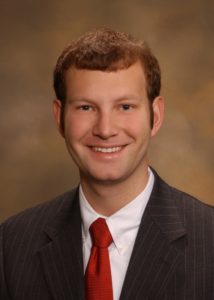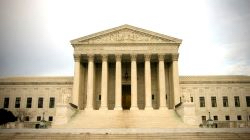By Matthew R. Courtner
The Supreme Court’s new term begins on October 7, 2019. The Supreme Court has already granted certiorari in several employment law cases. In this article, we will briefly review the cases the Supreme Court will consider.
Title VII – The meaning of “sex”
As you well know, Title VII of the Civil Rights Act of 1964 prohibits discrimination because of, among other things, an individual’s sex. 42 U.S.C. § 2000e-2(a)(1) (2019). In recent years, several federal appellate courts have considered whether the term “sex” includes sexual orientation and have reached differing conclusions. For example, the Seventh Circuit concluded that “sex” includes sexual orientation. See Hively v. Ivy Tech Comm. College of Indiana, 853 F.3d 339 (7th Cir. 2017). In contrast, the Eleventh Circuit concluded that Title VII does not prohibit discrimination based on sexual orientation. See Evans v. Georgia Regional Hosp., 850 F.3d 1248 (11th Cir. 2017).
The Supreme Court has previously declined to consider whether the term “sex” prohibited discrimination based on sexual orientation. For example, the Supreme Court denied certiorari in the Evans cases. Evans v. Georgia Regional Hosp., 138 S. Ct. 557 (2017). However, with the split of authority between the Seventh and Eleventh Circuits, on April 22, 2019, the Supreme Court granted certiorari in three cases to determine whether “sex” includes sexual orientation or gender identity. Altitude Exp., Inc. v. Zarda, 139 S. Ct. 1599 (2019); Bostock v. Clayton Cnty., Ga., 139 S. Ct. 1599 (2019); and R.G. & G.R. Harris Funeral Homes, Inc. v. E.E.O.C., 139 S. Ct. 1599 (2019). As of now, this is probably the most significant employment law issue that the Supreme Court will decide in its next term.
In Altitude Exp., Inc. v. Zarda, Donald Zarda, “a gay man,” was a skydiving instructor for Altitude Express. Zarda v. Altitude Exp., Inc., 883 F.3d 100, 108 (2d Cir. 2018). After receiving a complaint from a customer that Zarda had inappropriately touched her, Altitude Express terminated Zarda. Id. at 108-09. Zarda then sued alleging that Altitude Express terminated him in violation of Title VII “because he failed to conform to male sex stereotypes by referring to his sexual orientation.” Id. at 107.
In Bostock, the County employed Gerald Bostock, “a gay male,” as the Child Welfare Services Coordinator; Bostock was responsible for the County’s CASA program. Bostock v. Clayton Cnty., 2017 WL 4456898, at *1 (N.D. Ga. July 21, 2017). Bostock joined a “gay recreational softball league” and “actively promoted Clayton County CASA to league members as a good volunteer opportunity.” Id. Persons with influence with the County’s decision-makers allegedly “openly criticized” Bostock because of his sexual orientation. Id. The County later decided to audit the CASA funds that Bostock managed. Id. The County then terminated Bostock “for conduct unbecoming one of its employees.” Id. Bostock alleged that the County discriminated against him in violation of Title VII for failing “to conform to a gender stereotype.” Id. at *2.
In R.G. & G.R. Funeral Homes, Aimee Stephens “was born biologically male.” E.E.O.C. v. R.G. & G.R. Harris Funeral Homes, Inc., 884 F.3d 560, 566 (6th Cir. 2018). While presenting as a man, Stephens was the funeral director at R.G. & G.R. Harris Funeral Home. Id. The funeral home terminated Stephens shortly after Stephens told the owner that she “intended to transition from male to female and would represent herself and dress as a woman while at work.” Id. Additionally, the funeral home had a policy of providing clothing to male employees, but not to female employees. Id. Upon learning of this policy, the E.E.O.C. took over Stephens’s case and sued the funeral home, alleging discrimination in violation of Title VII by terminating Stephens “on the basis of her transgender or transitioning status and her refusal to conform to sex-based stereotypes” and “administering a discriminatory-clothing-allowance policy.” Id. at 566-67.
The Supreme Court has consolidated the Altitude Exp. and Bostock cases and will hear oral arguments on October 8, 2019. In these consolidated cases, the Court will decide whether Title VII’s ban on employment discrimination because of “sex” applies to discrimination based on sexual orientation. The Court will also hear oral arguments in the R.G. & G.R. Harris Funeral Homes case on October 8, 2019. The Court will decide whether Title VII’s ban on employment discrimination because of “sex” applies to discrimination based on gender identity.
Former Justice Anthony Kennedy was often the swing vote in cases decided along party lines, including cases involving gay rights. However, Justice Kennedy retired in 2018 and was replaced by Justice Brett Kavanaugh, who many legal scholars consider more reliably conservative than Kennedy. It is thus expected that the case will be decided on a 5-4 vote in favor of “sex” not including sexual orientation or gender identity. If that is the outcome, it would then be up to Congress to pass a law amending Title VII to include sexual orientation and gender identity as a protected class.
Age Discrimination in Employment Act
Causation Standard for Federal-Sector Claims
The ADEA prohibits age discrimination against federal employees. Specifically, under the ADEA, “[a]ll personnel actions affecting [federal] employees or applicants for employment who are at least 40 years of age . . . shall be made free from any discrimination based on age.” 29 U.S.C. § 633a(a) (2018). In Babb v. Secretary, Department of Veterans Affairs, Noris Babb, a pharmacist at a VA Medical Center in Florida, alleged that her supervisors discriminated against her because of her age. Babb v. Secretary, Department of Veterans Affairs, 743 Fed. App’x 280, 282 (11th Cir. 2018). On June 28, 2019, the Supreme Court granted certiorari to decide the applicable causation standard for a federal-sector age discrimination claim. Babb v. Wilkie, – – S. Ct. – -, 2019 WL 145517 (2019).
The Supreme Court has already decided the causation standard for private-sector employees. Specifically, the Supreme Court concluded that “because of age” in the private-sector statute means “that age was the ‘reason’ that the employer decided to act.” Gross v. FBL Fin. Serv., Inc., 557 U.S. 167, 176 (2009). Therefore, the Court held that the plaintiff “must prove that age was the ‘but-for’ cause of the employer’s adverse decision.” Id.
In Babb’s case, the district court and the Eleventh Circuit concluded that the Supreme Court’s decision in Gross precluded an application of a motivating factor standard. Babb, 743 Fed. App’x at 287. However, the language of the federal-sector statute and the private-sector statute are slightly different. Compare 29 U.S.C. § 633a(a) with 29 U.S.C. § 623(a). The Seventh Circuit has observed that “[w]hether the difference in statutory language is enough to distinguish Gross is a close and difficult question.” Reynolds v. Tangherlini, 737 F.3d 1093, 1104 (7th Cir. 2013). The Ninth Circuit has agreed with the Eleventh Circuit that but-for causation is required, but the D.C. Circuit has disagreed, applying a motivating factor analysis. Shelley v. Geren, 666 F.3d 599 (9th Cir. 2012); Ford v. Mabus, 629 F.3d 198 (D.C. 2010). Thus, the Supreme Court will resolve this split of authority and decide whether federal-sector employees must prove that age was the but-for cause of the adverse employment action.
Employers should be on the lookout for the Supreme Court’s decision in these cases.

Rainey, Kizer, Reviere & Bell, PLC
mcourtner@raineykizer.com
www.raineykizer.com
